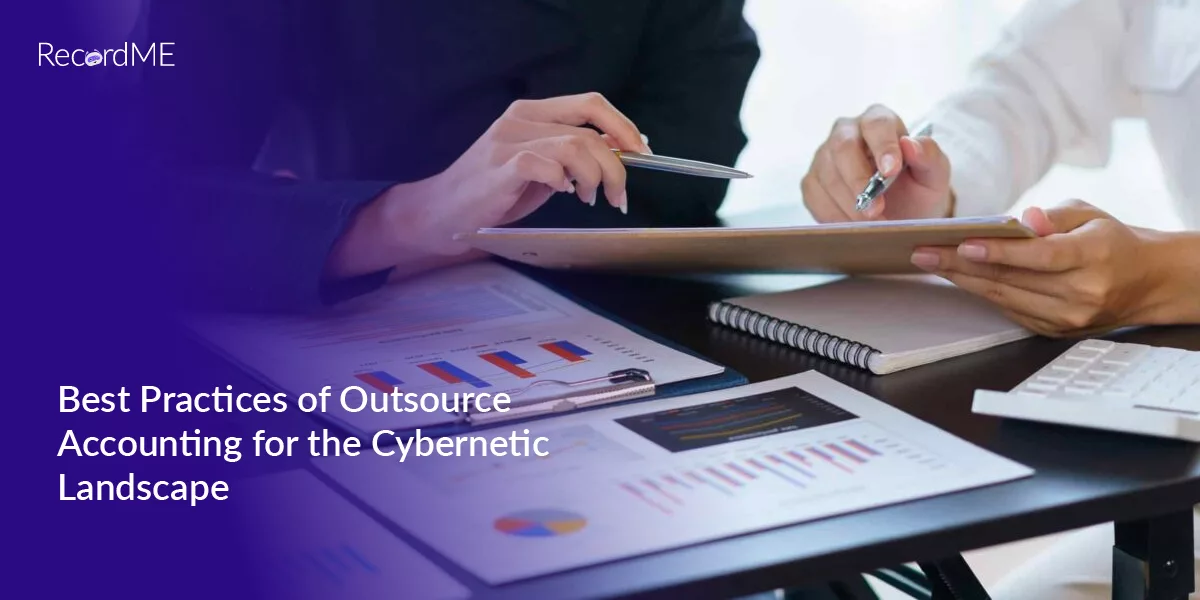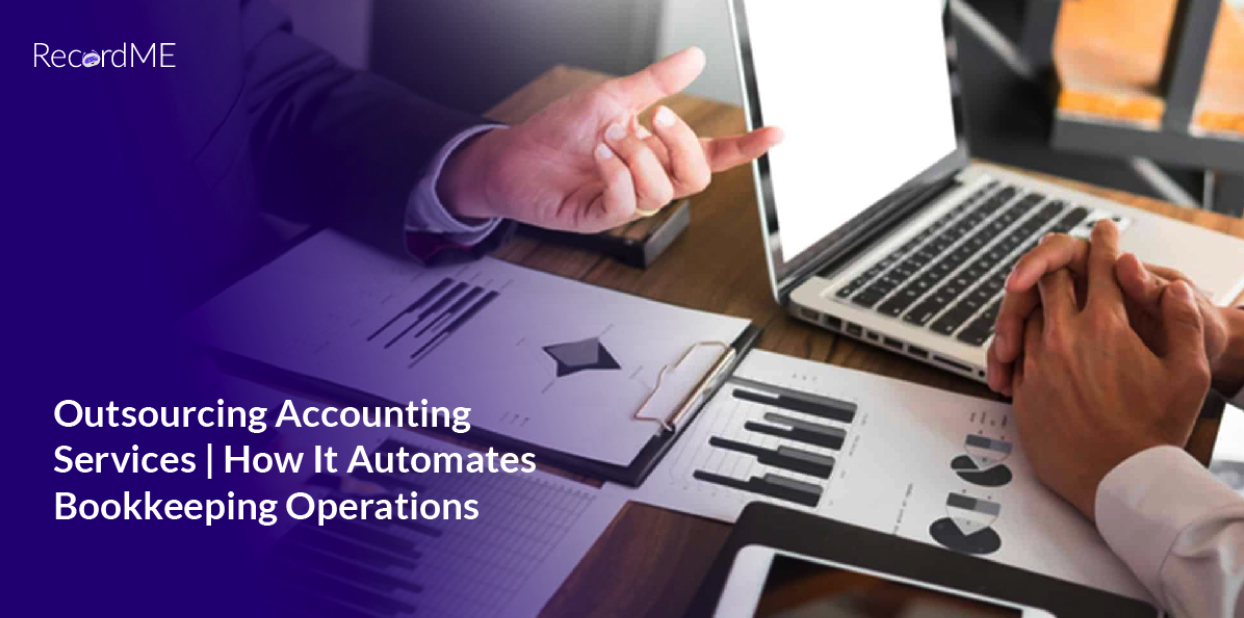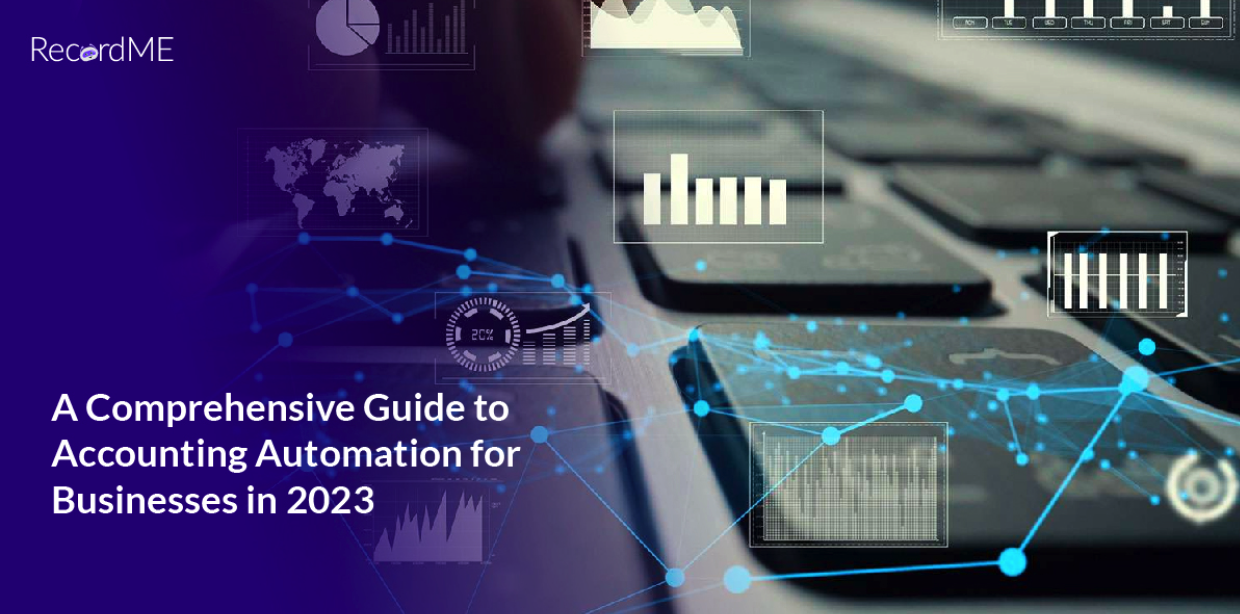5 Emerging Accounting Trends to Watch Out for in 2023

In This Post
New technologies are emerging, and traditional ways of handling accounting tasks are becoming obsolete, resulting in automating businesses in this digital era.
Accounting procedures evolve as technology is developing and conventional methods of doing things are rendered outdated. High-tech systems and computerized accounting procedures have an effect on many accounting firms. When discussing new accounting trends, it is difficult to foresee what might happen in the future.
According to a report, over 90% of accountants believe that technology is influencing the practice of accountancy in a positive way. Numerous causes, including revolutionary shifts and customer expectations, are responsible for this fundamental evolution.
Technology Trends in Accounting to Pay Attention
In what ways is the accounting sector growing? Well, rapid technological improvements are a major factor in this shift. The corona pandemic has also sped up its adoption in different ways. A moderate to notable Return on Investment (ROI) is reported by 70% of firms that have automated one-fourth of accounting tasks.
Remote Workforce
Traditional ways of employment are evolving. Businesses are benefiting from the fact that employees are no anymore confined to a physical office. The accounting sector is one that can accomplish it more readily than others.
Due to the corona outbreak and the use of cloud-based software, an increasing number of accountants are telecommuting, enabling staff to do their allocated jobs without being present in the same building. This pattern will probably persist.
Working remotely has several advantages, including more freedom and lower administrative expenses. Accounting firms that need to retain their efficiency should think about creating a remote work policy. It is now obvious that there isn’t one best technique to manage the staff. Each team member has unique preferences for working efficiently.
While conventional businesses still conduct their business face-to-face, there is an obvious need for businesses to offer employees a flexible, adaptable work environment in order to attract and retain talent. And this is extremely feasible with the help of modern technology and tools.
Data Security
Hackers are becoming more sophisticated as accounting companies and their customers share more information remotely. Accounting businesses must take precautions against cyberattacks and other issues with data security.
Accounting professionals may now access work more easily when at home or on the go due to cloud-based software, which offers a scalable, affordable alternative for secure online information storage. To ensure that genuine users have access to sensitive data, accounting companies should also deploy technologies with two-factor authentication. Due to the volume of private financial information shared between customers and accountants, even a small security knock might result in identity theft. By securing an organization’s most important asset—the financial information of its clients—data security efforts can assist reduce risk exposure.
Automated Processes & Artificial Intelligence
The practice of manually entering data into a bookkeeping excel spreadsheet is quickly becoming obsolete. Automated bookkeeping solutions would help accounting businesses stay competitive while also saving time and resources. It is anticipated that 58% of professional accountants will automate jobs utilizing AI technology within the next three years.
Robotic Process Automation (RPA), which uses AI bots to swiftly and accurately accomplish repetitive tasks, has the potential to automate processes. Even the analysis of documents and the creation of reports might benefit from it. This will not just save time and expense, but it will also free up staff time so they can concentrate on tasks with a higher impact and greater value.
The role of accountants in organizations will change along with the development of artificial intelligence. Numerous sectors are already using AI to streamline manual operations.
AI may, for instance, create financial reports, maintain client relationships, or spot fraudulent activities. Professional accountants need to educate themselves on AI and how it will affect the accounting sector.
Data Analytics and Forecasting
Accountants need to employ modern analytics and forecasting methods in addition to big data. The need for data experts in the accounting sector will skyrocket in the future.
Data analytics make it easier to spot operational inefficiencies and effectively control risks. To support decision-making based on data, more companies will spend on data analysis.
To make future estimates, accounting firms might examine historical performance information for their customers. Forecasts help businesses prepare so they can decide more wisely when it comes to making important business decisions.
For instance, let’s say a business is aware that some months show significant sales of a specific product. They are likely to assess if or not manufacturing capabilities have to be adjusted and maximize output during those periods.
Accounting firms should actively make investments in data science training programs that provide strategies employed by industry leaders and practical experience with a variety of technologies such as SQL, Python, and Excel for bookkeeping. Having special data analytic abilities or expertise in data science is now advantageous for accountants.
Cloud-Based Accounting Software
Accounting businesses are catching up to satisfy the needs of organizations that are shifting to the cloud at an increasing rate. One can view the data from any device connected to the internet using cloud-based accounting systems. It’s a great choice for businesses with numerous locations or remote workers.
Collaboration and file sharing are also made simple by cloud-based technologies. It saves time by giving all of the team’s accountants quick and easy access to the accounting information. It has reduced upfront expenses for traditional internal accounting software and services for firms and improved security.
Workflows are created using cloud-based software as well, saving firms important time from having to repeat work. This accounting trend reduces expenses, saves time, and improves accessibility and protection overall.
How Can RecordMe Help?
The accounting sector is evolving. What will a business do to keep up with competitors in this digital environment.
RecordMe makes client data collection easy. Use it for onboarding new clients, month-end bookkeeping, or year-end tax preparation.
With all the customers in one location, request templates, and automated reminders, the business team can spend less time hunting down data from customers and more time actually creating value for them. Still, have any concerns?
RELATED BLOGS
Search Blog
Category




